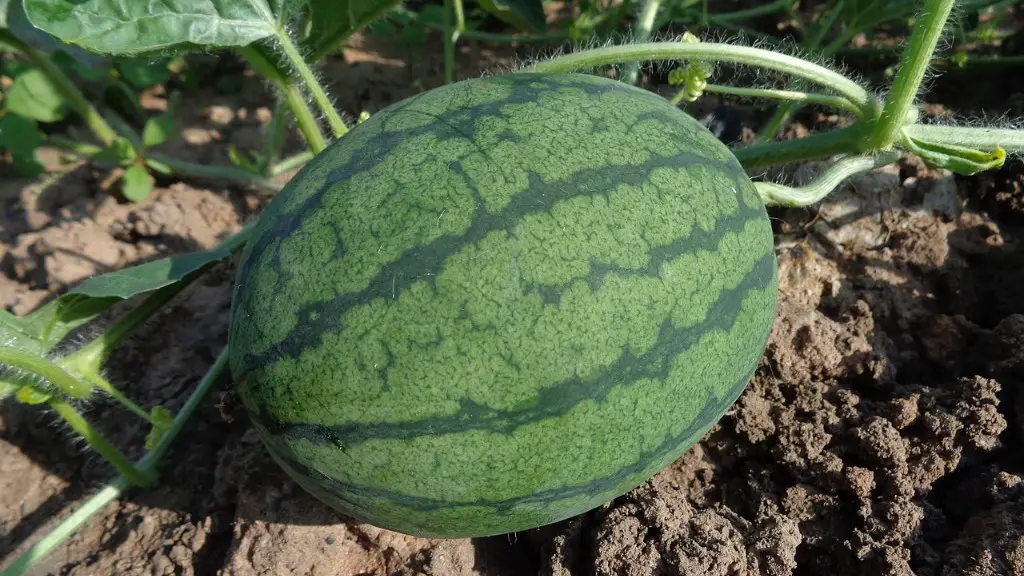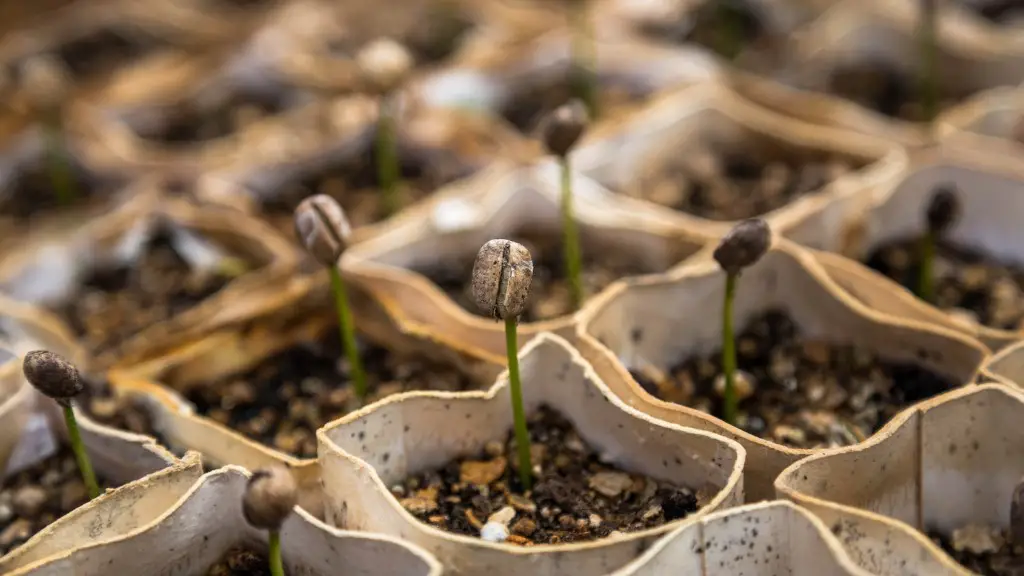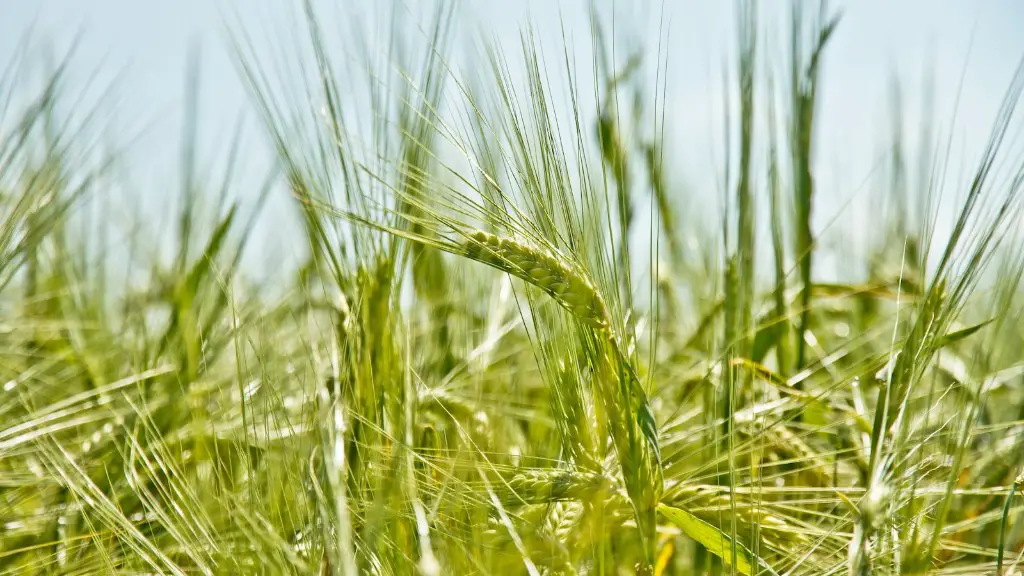Agriculture has been a major factor in India’s economy. The right soil is essential for agricultural production and should be cultivated according to the type of crop to be grown. Different soil types are ideal for different crops. Loamy soil with adequate drainage, high organic content and adequate fertility is ideally suited for agriculture in India.
The most important factor in deciding the suitability of soil for agriculture is its texture or structure. In India, the main soil types are sandy, loamy, and clayey. Sandy soil is made with large particles and its structure doesn’t retain nutrients or water well. Clayey soil is made up of small particles, which can retain water and nutrients. Loamy soil is composed of a mix of sand and clay particles. It has a balance of air, water and nutrients, making it an ideal soil for agricultural land.
The quality of the soil is of utmost importance as it affects the water and nutrient holding capability as well as the overall drainage capacity of the land. Sandy soil can be enriched with organic matter such as manure, compost, and mulch to improve its water-holding and nutrient-holding capacity. Clayey soil too should be mixed with organic matter to improve drainage and make it more suitable for agriculture.
The pH level is another important factor that affects soil fertility. The ideal pH range is 6.0 to 7.0. in India, different soils have different pH values. For example, red soils in the Deccan plateau have pH values ranging from 5.5 to 7.5. Sandy soils from western India have a pH ranging from 8.0 to 8.5. In northern India, the loamy soils have a pH of about 6.0 to 6.5. In addition to the pH level, soils should have adequate organic matter content.
Soil fertility can be improved by using various organic and inorganic fertilizers. Organic fertilisers such as compost, manure and green manures can be used to improve soil fertility. Additionally, chemical fertilizers like nitrogen, phosphorus and potassium can also be applied to meet the nutrient demands of the soil. The use of pesticides must also be monitored to ensure soil health and protection against pests and diseases.
India has a variety of soil types, ranging from sandy to clayey and loamy. However, loamy soil is the most suitable for agricultural cultivation as it has good drainage, adequate fertility, and a balanced structure. The soil should also have a suitable pH and adequate organic matter content for optimal crop productivity.
Effects of pH on the Suitability of Soil for Agriculture in India
The pH level of the soil is an important determinant of its suitability for agriculture. A pH level higher than 7.5 can have a detrimental effect on crop yield, while a ph level lower than 6.0 may not provide enough nutrients to crop plants. In India, different soil types have different pH values depending upon their regional locations. For example, red soils in the Deccan Plateau have pH levels ranging from 5.5 to 7.5 while sandy soils from western India have a pH ranging from 8.0 to 8.5. It is important to adjust the pH level of the soil so that it falls within the optimum 6.0 to 7.0 range, in order to ensure balanced growth of crops.
One way to adjust the pH balance of the soil is to apply lime or gypsum to it. Lime is usually used to increase the pH of the soil while gypsum is used to lower it. Lime is a natural soil conditioner and can be used to increase the pH of acidic soils. It can also be used to amend clay soils to make them more suitable for agriculture. Gypsum is most often used for soils with alkaline pH levels and can help improve drainage, aeration and water-holding capacity.
Apart from adjusting the pH, organic and inorganic fertilisers are also essential for improving soil fertility and crop yield. Organic fertilisers such as compost, manure and green manures can be used to improve soil fertility. Inorganic fertilisers such as nitrogen, phosphorus and potassium can also be applied to meet the nutrient demands of the soil. Additionally, the use of soil amendments, such as phosphorus and potassium, can improve fertility and yield of crops. The use of pesticides must also be monitored to ensure soil health and protection against pests and diseases.
Soil Fertility and Nutrition Requirements
Soil fertility and nutrition requirements are important considerations while deciding which soil is suitable for agriculture in India. Soil fertility can be improved by applying appropriate organic and inorganic fertilizers thereby helping to meet the crop nutrient needs. Organic fertilisers such as compost, manure and green manures can be used to improve soil fertility. Inorganic fertilisers such as nitrogen, phosphorus and potassium are essential for ensuring good crop yield and have to be added regularly to maintain soil fertility.
Soil fertility is also directly linked with soil organic matter (SOM) content. SOM is essential for maintaining soil fertility as it helps in improving water-holding and nutrient-holding capacities. It also increases the availability of key nutrients like nitrogen, phosphorus and potassium. SOM is a product of plant and animal residues, manures and composts, and other organic materials. So, incorporating organic materials like composts, manures etc. into the soil can help in improving the SOM content thereby making the soil more fertile.
It is important to test the soil to understand its properties such as texture, structure, nutrient availability and pH. Based on the results, suitable fertilizers and soil amendments can be used. Soil testing also helps to understand any nutrient deficiencies and the nutrient levels can be adjusted accordingly. So, soil testing is an essential step for deciding which type of soil is suitable for agriculture in India.
Organic Farming for Sustainable Agriculture in India
Organic farming is becoming an increasingly popular option for sustainable agricultural practices in India. Organic farming systems help to maintain the fertility of soils by eliminating the use of chemical fertilizers and pesticides. This helps to reduce environmental pollution and also ensures higher quality soil and crops. Organic farming focuses on enhancing the natural fertility of the soil through the application of animal manures and composts. Organic farming also helps in restoring soil fertility by increasing the microbial activity thereby enriching the soil with essential nutrients.
Organic farming also helps to conserve the natural resources like water and soil by minimizing the use of chemicals and water. This helps to reduce the water and soil degradation that result from modern farming practices. Organic farming practices also help to reduce the emission of greenhouse gases, which is becoming an increasingly important factor in the climate crisis. Additionally, organic farming systems can help small scale farmers by increasing their profit margin as the food produced is often of higher quality and cheaper to produce than food grown using traditional modern farming approaches.
Organic farming also helps to preserve the biodiversity of an area by promoting healthy ecosystems. Having a diverse range of plants, animals and other organisms helps to create a balanced and healthy environment, which in turn helps to improve soil fertility, soil quality and crop productivity. Additionally, organic farming can be especially beneficial in marginal lands with low-fertility soils as it helps to improve the soil fertility and crop productivity of such lands.
Appropriate Machinery for Sustainable Agriculture in India
Appropriate machinery is an essential part of sustainable agricultural practices in India. Inappropriate machinery can cause damage to soils, thus decreasing the fertility of the soil and affecting crop production. Appropriate machinery such as zero-tillage implements, tractors, combine harvesters, seeders, and reapers help to minimize soil disturbance and erosion which are important considerations for ensuring sustainable farming practices. Such machinery can also help in improved crop production and labour efficiency.
Zero-tillage implement help in minimizing soil disturbance thus helping to maintain soil fertility. Tractors are useful for transporting heavy loads and can be used in several other agricultural activities. Combines harvesters helps in harvesting crops quickly and in large quantities while seeders help in sowing the seeds in large areas. Reapers are also useful in harvesting the crop quickly by cutting the crop and laying it on the ground in rows for easy collection.
In addition, appropriate machinery can help to reduce the overall labour cost and time as it can be used for several operations. This helps to make agricultural operations more efficient thus leading to higher crop yields. Additionally, such machinery help to reduce the amount of labour needed as it can do jobs that would have traditionally been done manually thus reducing the need for manual labour. Thus, appropriate machinery can help to improve agricultural productivity and ensure sustainable agriculture in India.
Application of Technology for Sustainable Agriculture
The application of technology can help to ensure sustainable agricultural practices in India. In recent years, various technologies such as drones, remote sensing, automated irrigation systems, and GPS-based tracking systems have become increasingly popular in India. Such technologies can help to improve agricultural productivity by enabling improved monitoring and management of water resources. For example, drones can help to monitor crop growth and water needs while automated irrigation systems can help to reduce water wastage, reduce labour costs and enhance crop productivity.
Remote sensing techniques can also be used to carry out precision farming. This helps to identify crop cultivars and their nutrient requirements, monitor and predict weather pattern, detect disease, and optimize soil fertility. Additionally, GPS-based tracking systems can be used to monitor the movement of trucks and other vehicles carrying food, water and other essential items for farming purposes.
Thus, the application of technology can help to ensure more efficient and sustainable farming practices in India. By monitoring crop growth and the health of soils, more informed decisions can be taken regarding the use of fertilizers and other inputs. Moreover, by reducing the wastage of water and other resources, technologies can help to create a more sustainable agricultural environment and ensure the long-term prosperity of Indian agriculture.





